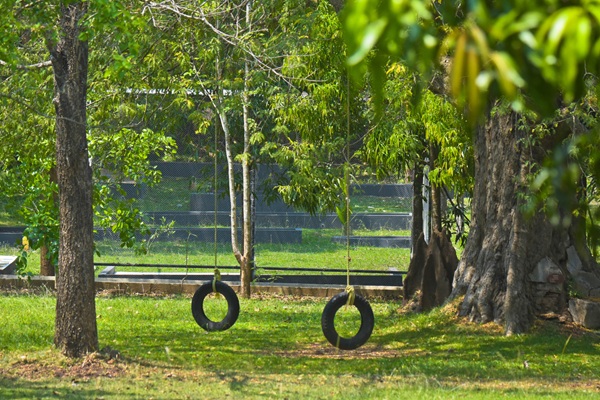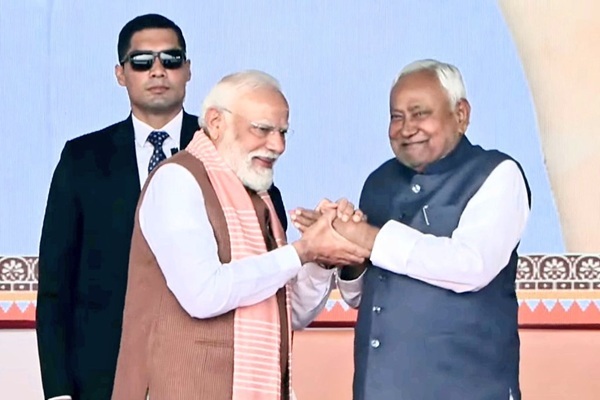.png)
Sarci-Sense: Why Modern India Feels Alone in a Crowd
We are a nation that can host 500 people at a wedding and still have no one to talk to, once they leave. That silence — the eerie and lonely one — is the scariest unsaid fear.


Dr. Srinath Sridharan is a Corporate Advisor & Independent Director on Corporate Boards. He is the author of ‘Family and Dhanda’.
November 23, 2025 at 7:56 AM IST
There is a new loneliness in India. You may have met it already. It shows up after the last wedding guest leaves, after the final round of polite laughter dies, after the Uber driver says “Good night” with more sincerity than most people you know. It is the loneliness of Indians who are never alone, only unseen.
Your life is probably full. You have colleagues, cousins, neighbours, a gym instructor who knows your pulse better than your partner, and at least six WhatsApp groups where you pretend to be active because leaving would cause scandal. You spend your week meeting people and your weekends recovering from meeting them. Yet, at some point between Saturday night and Monday morning, something taps your shoulder and says, “So who really knows you?” The silence answers first.
Modern Indians are astonishingly social. We have perfected the national skill of attending events we don’t want to attend, to impress people we don’t particularly like, with money we don’t really have. We smile at strangers, hug acquaintances, and politely ignore the fact that our closest friend in the room is the bartender. India has become one long social festival where everyone shows up and nobody connects.
The truth is simple: we don’t talk anymore. We perform. We roleplay. We sail through with our pretences and niceties that we don’t mean.
Ask anyone, “How are you?” and watch the reflex: “Good, good.” Even when they are quietly falling apart. Honesty has become impolite. Intimacy has become inconvenient. Friendship has become a PR exercise. We meet to show that we still exist, not because we wish to be seen.
And then there is technology, our national loneliness amplifier.
We live in a strange world where we are permanently reachable and barely reachable at the same time. You have hundreds of contacts but no one to call. Your phone buzzes all day, but not with anything you actually need. There are people who will like your photos within seconds, but none who will call you when your voice cracks at 10 p.m. Modern Indian friendship now resembles modern customer care: prompt, polite, and utterly useless in an emergency.
Middle-aged Indians are perhaps the loneliest creatures in this busy country. They walk around with an expression of cheerful competence, which is usually the strongest indicator that the person has not had a real conversation in a decade. They live in marriages that operate like startups — efficient, well-run, and emotionally bankrupt. Everything is coordinated: school fees, grocery lists, family visits. Everything except companionship. We talk all day, but not to each other.
Men handle loneliness in the only culturally acceptable way — they treat it like cholesterol. Something that exists, but nobody discusses unless the doctor insists. They laugh it off, joke about it, and occasionally suppress it with biryani. Their sorrow appears only in their blood pressure and in how long they stare at the ceiling fan at night.
Women have the opposite problem. They are never alone, yet completely invisible. Surrounded by people all day — children, colleagues, in-laws, bosses, neighbours — yet rarely asked what is going on inside their mind. Their loneliness isn’t empty. It’s crowded. It is the loneliness of a person who is indispensable but misunderstood.
And the young? They have pioneered a whole new genre of emotional isolation. They have followers instead of friends, validation instead of affection, and heartbreaks that arrive pre-filtered. They are fluent in therapy vocabulary — “boundaries,” “triggers,” “trauma” — but they use these words mostly to avoid revealing anything genuinely vulnerable. They overshare online and under-feel in real life. Their loneliness is algorithm-friendly.
Ironically, India should have been the last place where loneliness stood a chance. Our childhoods resembled railway stations. Someone was always entering or leaving a room. Privacy was a myth no one believed in. And now, as adults, we would happily trade three friends and a cousin for a single human being who knows what we’re afraid of.
But this is the price of the Indian disease of “nice behaviour.”
So now we are a nation of adults who attend birthday parties, laugh at jokes we don’t understand, and return home with a loneliness so sharp it deserves its own Aadhaar number.
It leaks out in strange ways.
And the saddest part?
Still, there is a small rebellion growing.
The rest of us?
And so the cure is embarrassingly small.
Not another app.
Just one human being you can be boring, irritating, flawed, honest, and unfiltered with — without fear of being unfriended.
Loneliness ends not when you meet more people,
Because loneliness in India is not outer emptiness.
And if there’s one thing this noisy, chaotic, well-populated nation desperately needs, it is this unfashionable, old-fashioned, deeply human sentence:
“Sit with me for a bit.”



